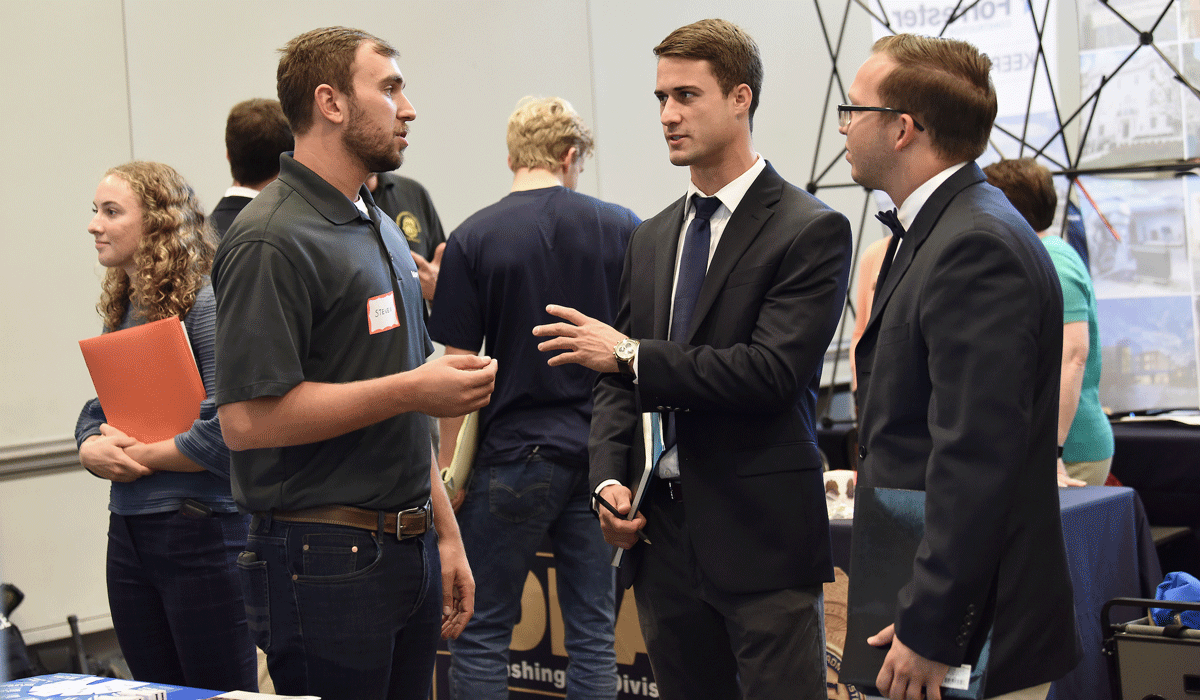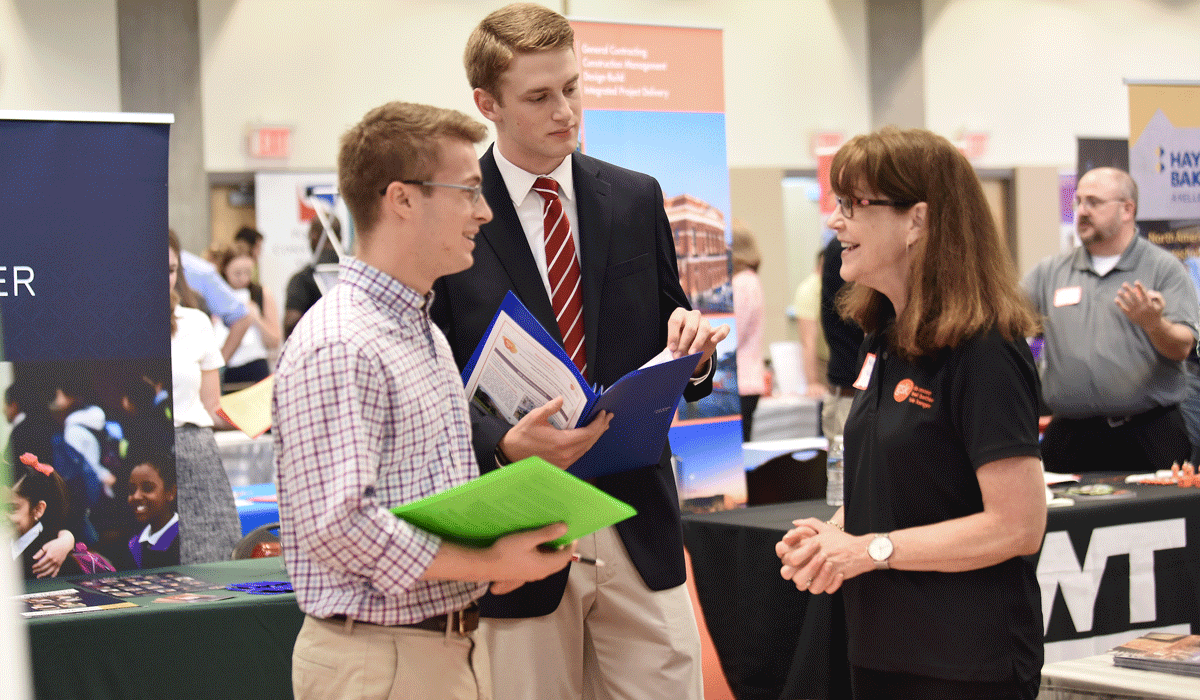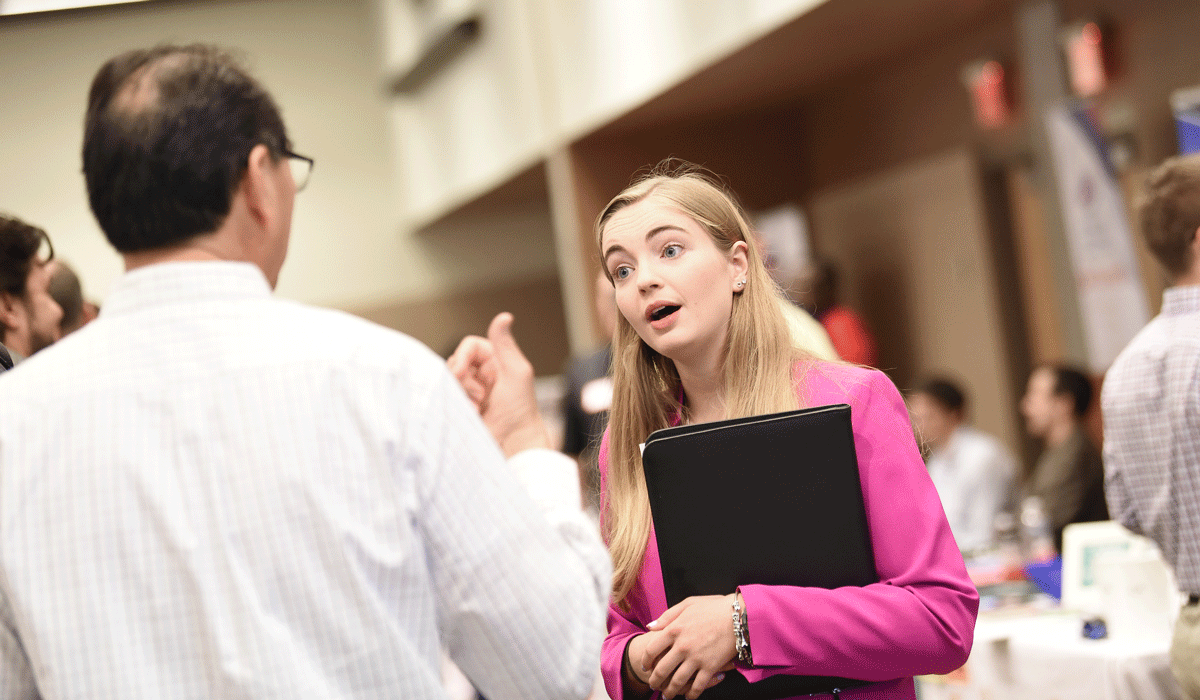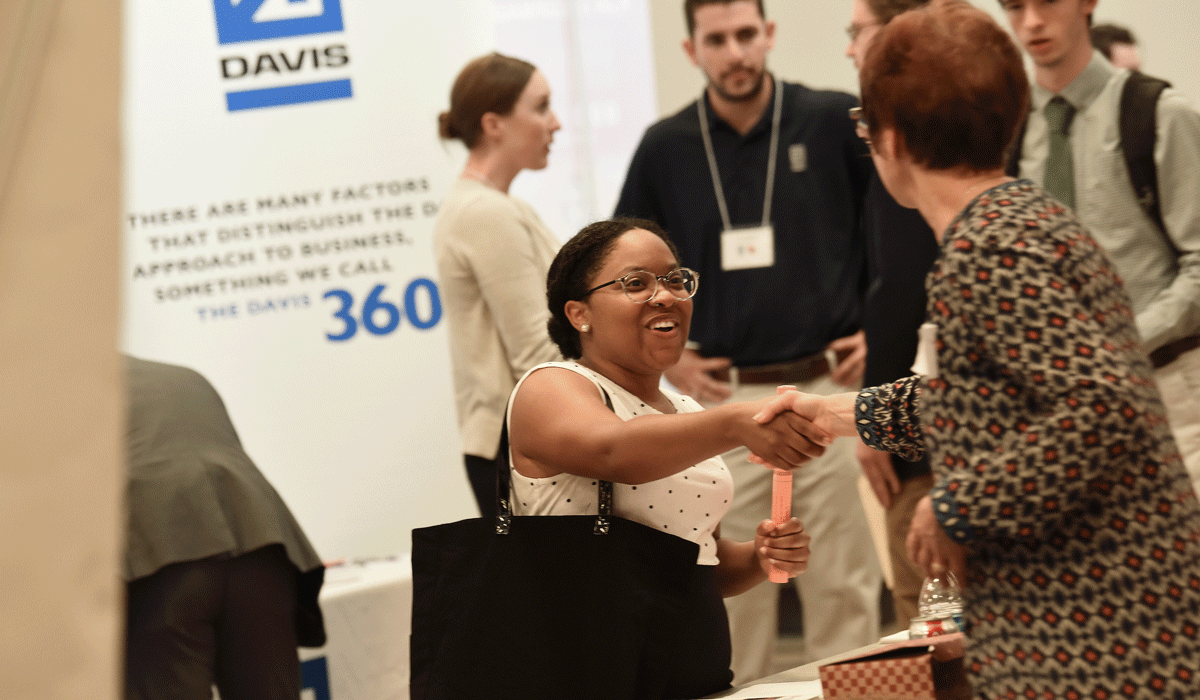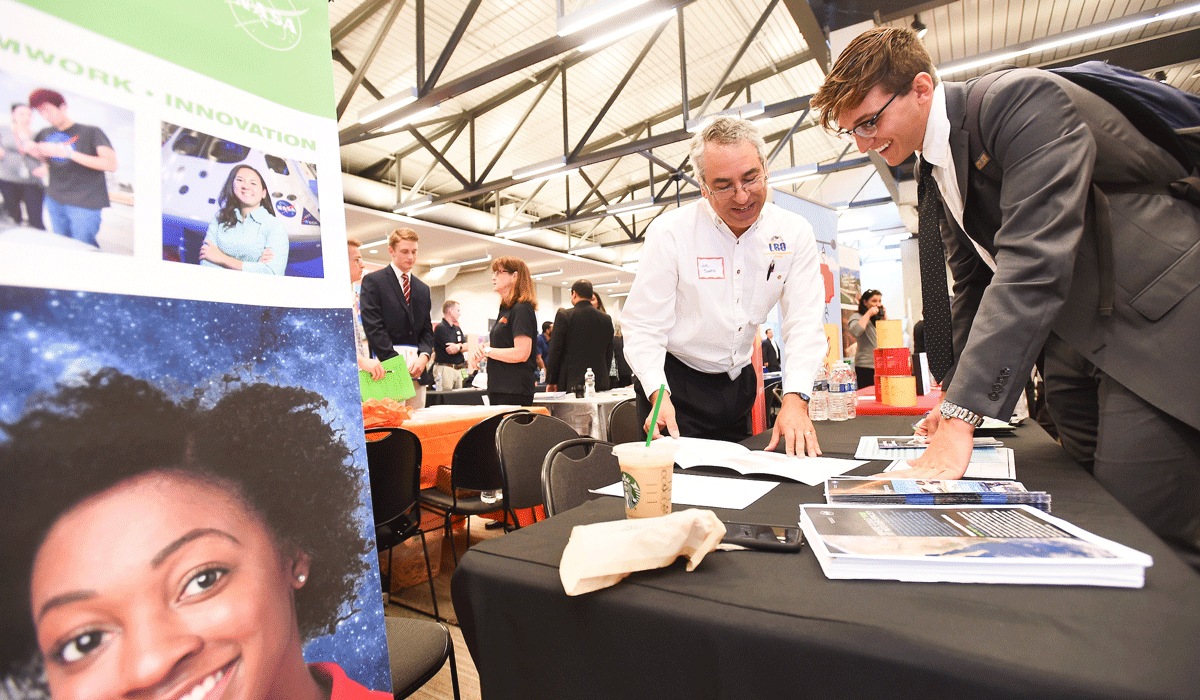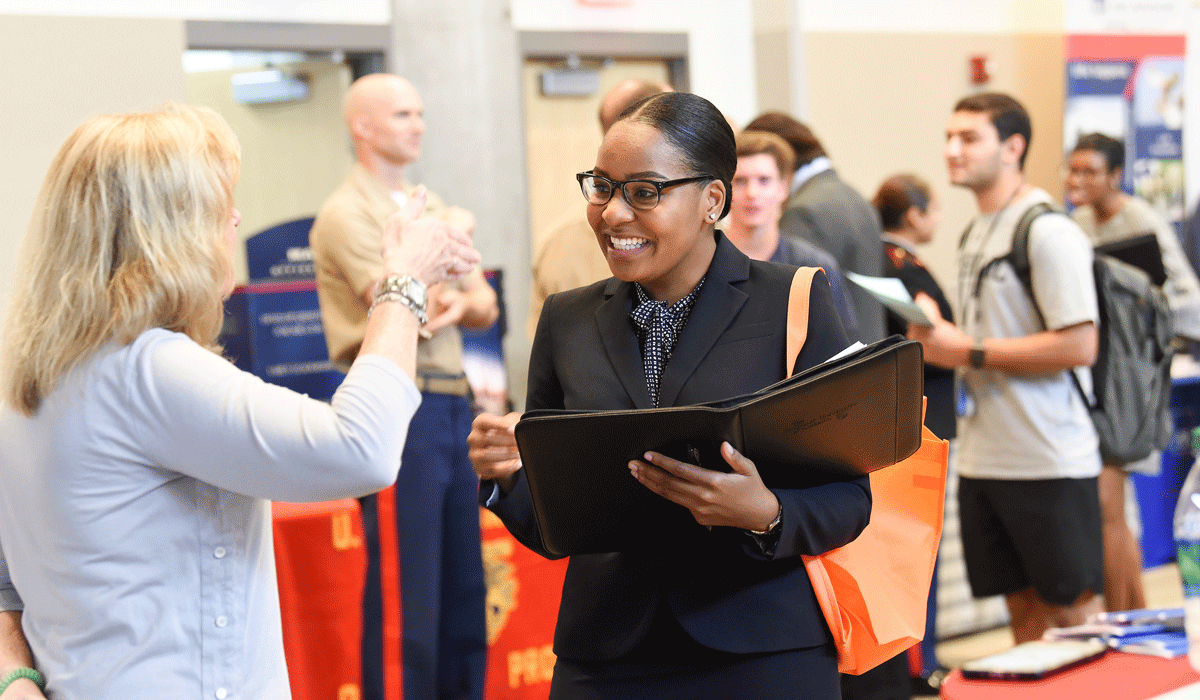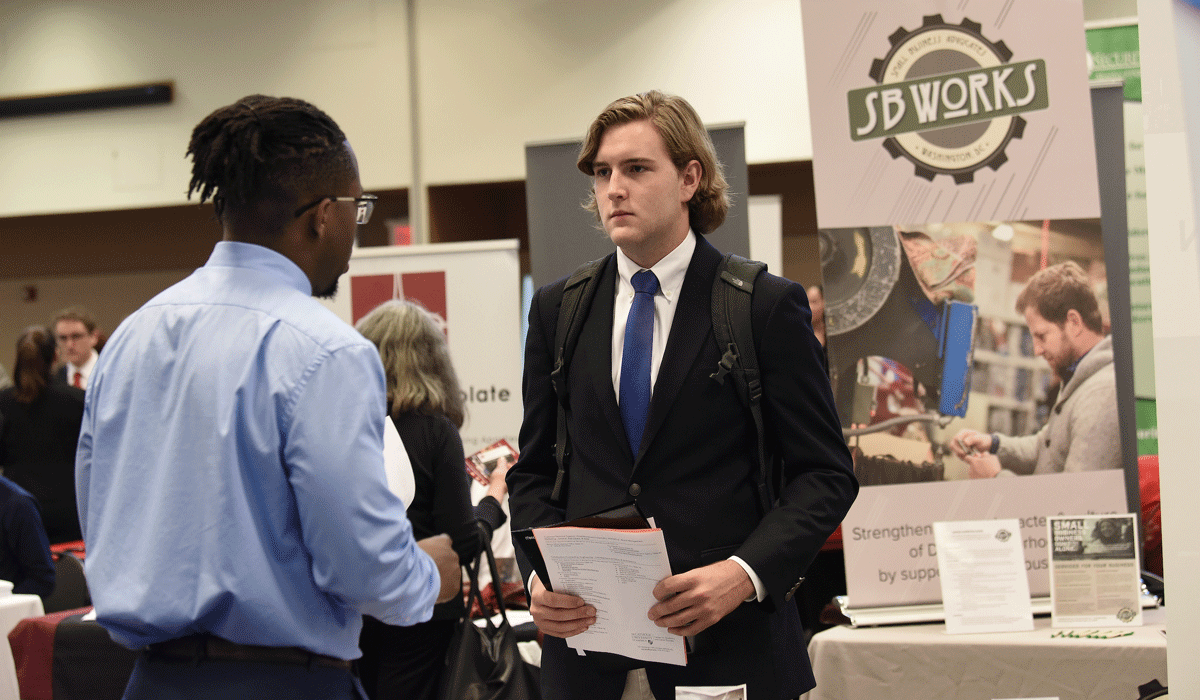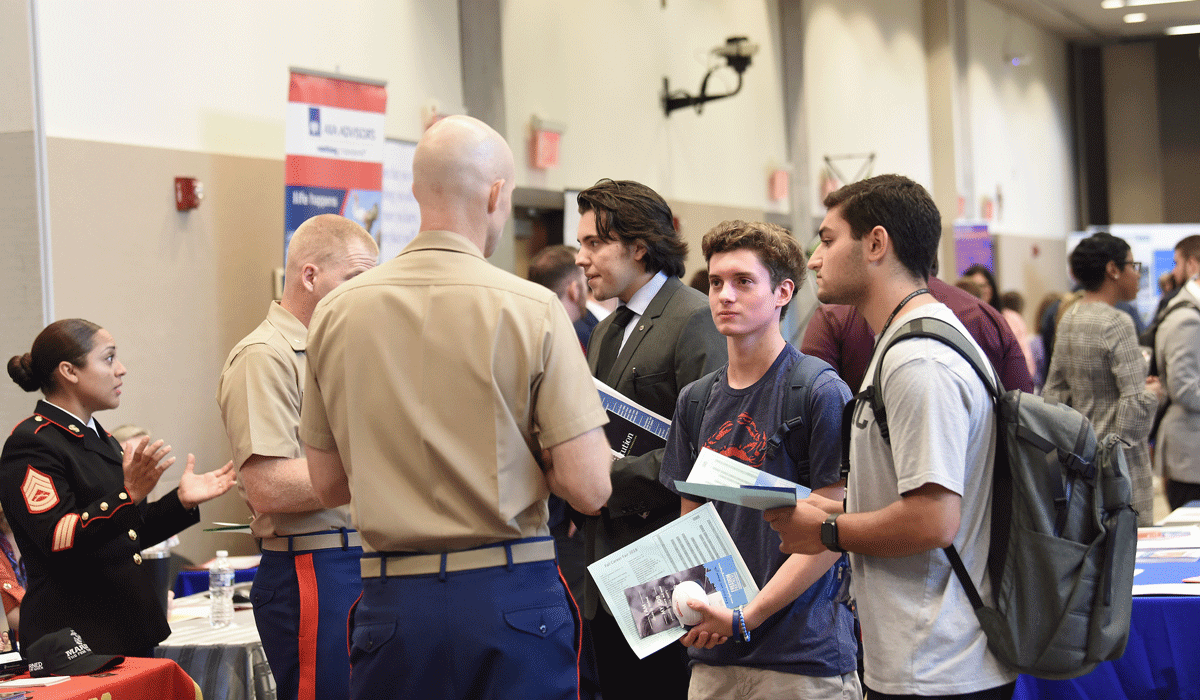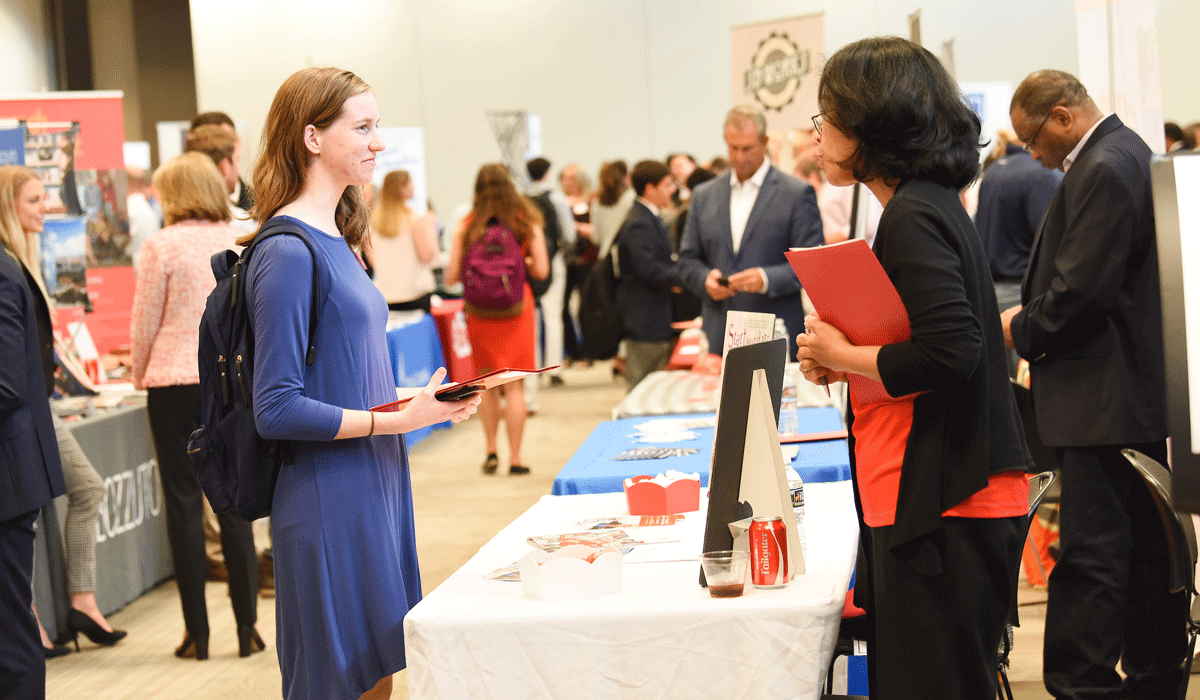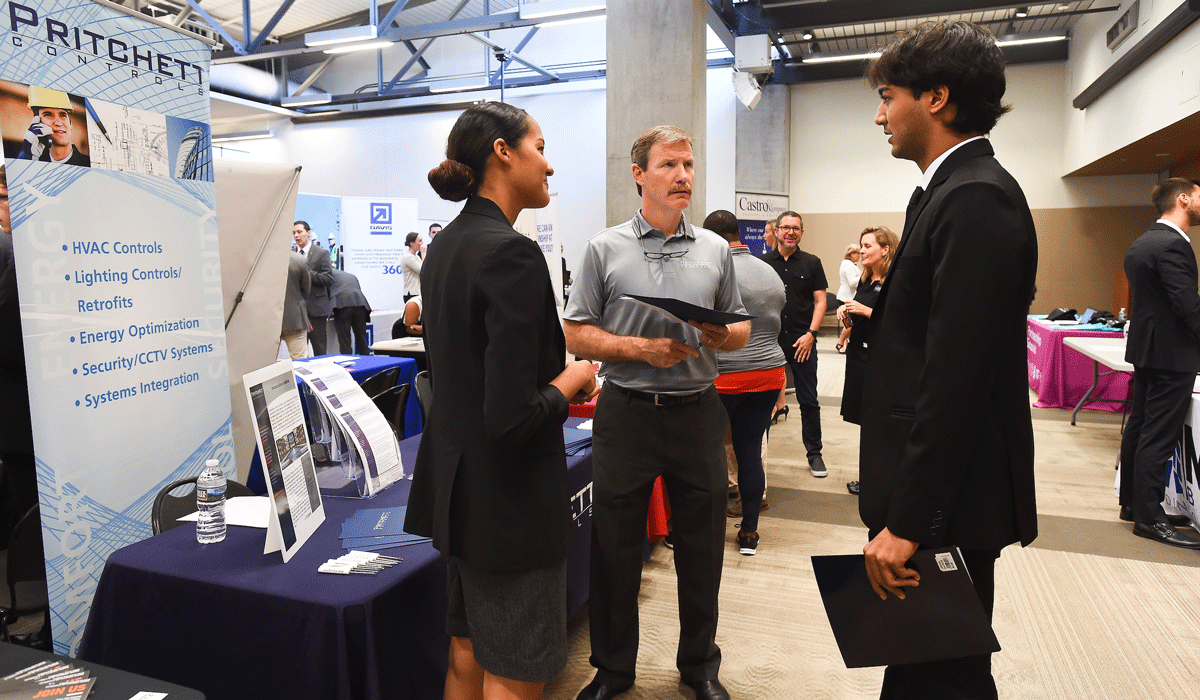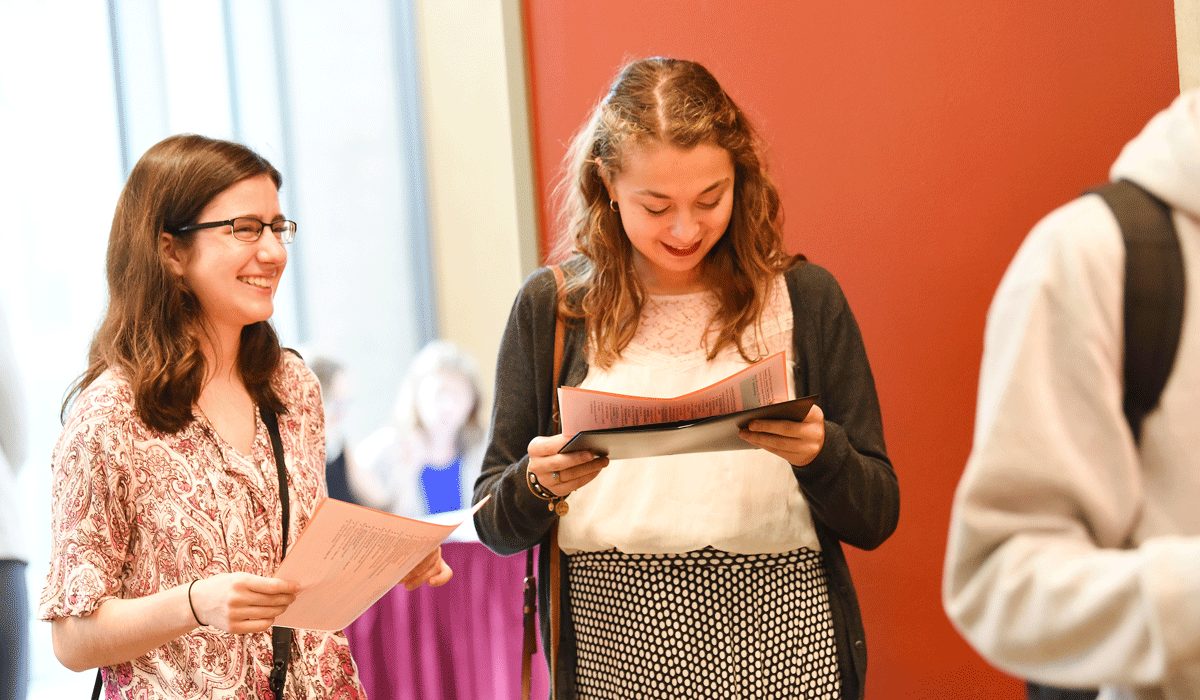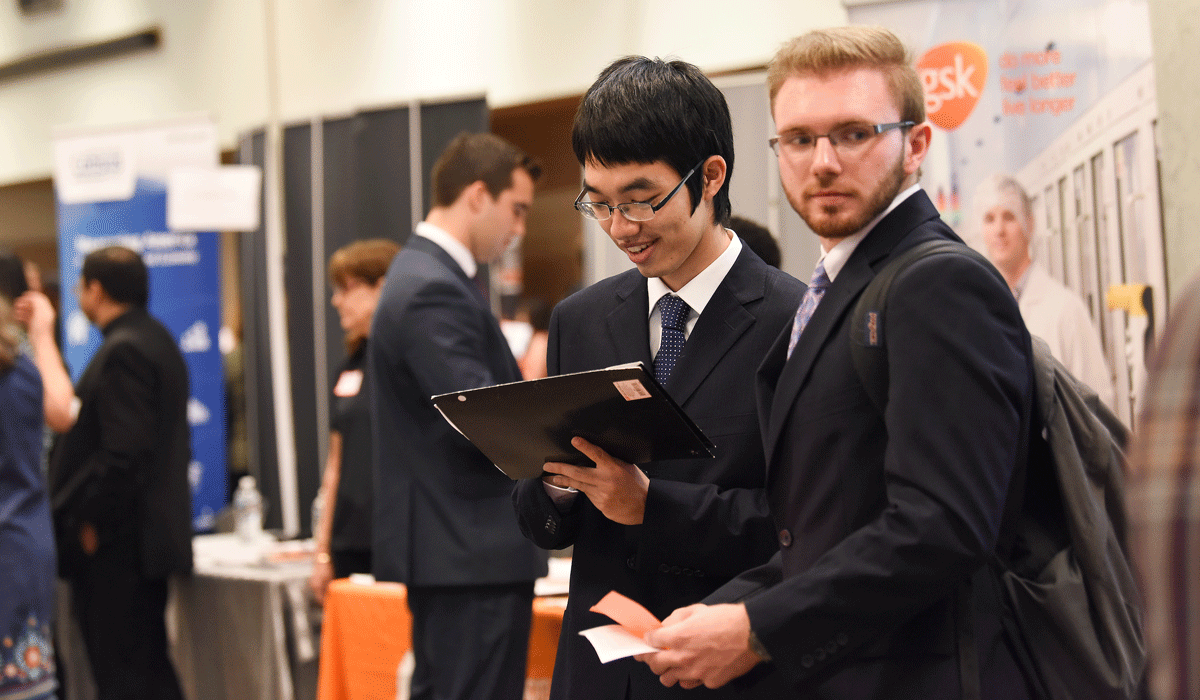
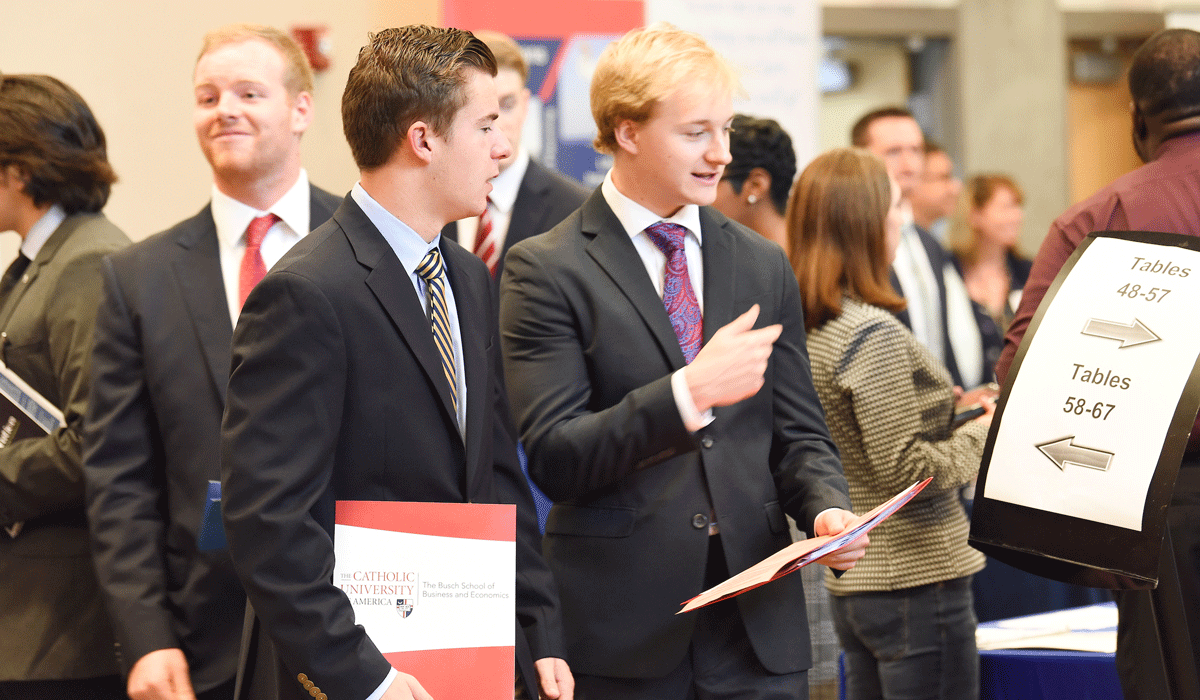
While students were gone for the summer, academic and career advisors at the Center for Academic and Career Success were studying hard, learning the details of the undergraduate curriculums for the more than 70 degree programs offered at Catholic University. Their training was part of the integration of the Office of Career Services, the Undergraduate Advising Center, and the Center for Academic Success into the newly established Center for Academic and Career Success.
The new center is the result of several years of discussion about how to better integrate career services and academic support at the University. It is an “exciting initiative,” Lynn Mayer, vice provost and dean of undergraduate studies, explains because “it shows the University’s investment and commitment to supporting students and providing them the services they need in a coordinated and integrated way.”
Kathryn Jennings, associate vice president for student engagement, believes that bringing together career services and academic support will lead to further integration between academic affairs and student affairs at the University. “It builds the relationship between student affairs and academic affairs,” Jennings explains.
Under the umbrella of the Center for Academic and Career Success students can now take advantage of career and academic counseling, academic and interview coaching, internship and job opportunities, as well as an array of tutoring services. “The idea,” explains Tony Chiappetta, co-director of the Center for Academic and Career Success and director of career services, “is to get students to progress along during their academic timeframe thinking about both academic and possible future goals. ‘What am I going to do with what I’ve learned?’ It’s very natural, they actually go together.”
By integrating academic and professional development resources, the Center for Academic and Career Success is able to provide students more holistic support and guidance.
Colin Pears, co-director of the Center for Academic and Career Success and director of academic support and advising, describes the center as a “hub for students,” whatever their specific needs may be. “If you come in and need help acclimating to the University, this is the right spot. If you need help taking advantage of new opportunities and developing yourself academically or toward your career goals, this is the starting point,” Pears explains. “In this office we can provide support and help students, even the student who doesn’t really understand what’s at stake or what they need to be working on.”
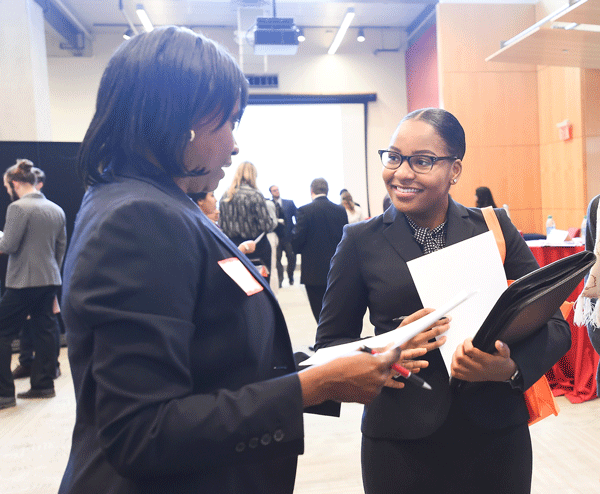
Guiding students and connecting them to the academic and professional development resources they need are their academic and career advisors. Incoming freshmen are assigned to an academic and career advisor in their academic area and work with that same advisor until graduation. The goal is for students to be able to build long term relationships with their advisors so students feel comfortable talking about any issues relevant to their academic, professional, and personal goals.
By integrating academic and career support, advisors are better equipped to help students meet these goals. Soad Mahfouz, an academic and career advisor for the hard sciences, says the integrated approach enables the advisors to give more concrete help. Career advisors, “used to have very minor conversations that centered around academics,” she explains. “This time around I’m going to be equipped to tell [students]: This is your major; we know this minor or certificate or class would complement your degree, and here are the steps to do it. ... We’ll be able to not only plant the seed but help them take the first steps because they have a concrete plan.”
Danielle Gallagher, an academic and career advisor for the social sciences says she can bring her career perspective to her knowledge of a particular curriculum to see “how that curriculum can be marketed to an employer.”
Junior Evan Brende, a music composition major with a minor in performing arts management, was already well aware of how the Office of Career Services could assist students. As a peer advisor for the Office of Career Services, Brende helped raise awareness in the School of Music about the many resources Career Services had to offer. “I believe that career services is much more approachable and much more helpful in terms of general assistance for someone looking for any type of career,” Brende explains, “including a music career.”
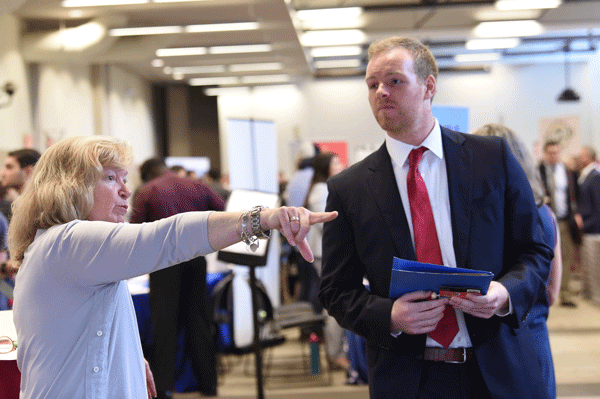
But the new Office of Academic and Career Success, he noted, could be even better at assisting students. “This seems like it would be a lot more helpful because you would be able to approach the same person for all these different questions. My freshman year it was a little confusing to figure out who you were supposed to go to with which question. I think with this new set up with career services combining with academic success and having one advisor for both makes it a lot easier to broach any subject with that advisor.”
Incoming freshmen were virtually introduced to their advisors over the summer and had the opportunity meet their advisors during orientation. Before making changes to their course schedule or registering for classes in the spring, they must meet with their advisor. The goal, however, is for the students to take ownership of their academic and professional development.
When students realize what the Center for Academic and Career Success can do for them, Gallagher says, they take full advantage of it. “I have a student who has figured out my direct line. ... I don’t even mind it because I know he’s going to tell other students, ‘this is awesome. They’re a great resource'.”
